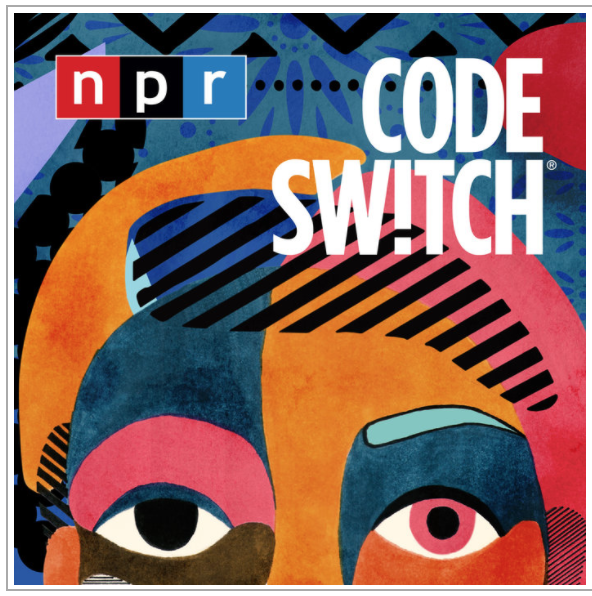
The Code Switch episode Why Now, White People? came out on June 16th, but the question is still live:
Why are so many white people currently involved in anti-racism protests and activities?
It’s a fair question because racism was an equally hot issue with equally horrible murders of Black men in 2014 and 2016, but not so many whites joined Black people in protesting. I’ve been wondering this question myself and was so fascinated by this episode that this post will mostly be a summary of what hosts Shereen Marisol Meraji and Gene Demby presented.
The podcast starts with host Gene Demby saying he posted on Instagram Stories an invitation for white people to say why they’re more active against racism now: “What makes this moment different?”
Some responses expressed embarassment that the white person hadn’t been more aware of racism before this. A handful of people said they have more friends of color now. Three men said their women of color partners called them out for being silent. But Gene identified three main themes:
1. Other white people are motivating them. It’s not just peer pressure or getting invited to protests, but feeling like it’s safer to speak up against racism. Since 2016 there has been more support among white people for racial equity.
2. El Idiota, the 45th president of the United States. His election opened people’s eyes to the reality that no one is going to save the country for them; they have to get active themselves. The shock of that election galvanized women’s marches and other actions so that by the spring of 2020, people were more comfortable with the act of protesting.
On the podcast at this point, Shereen wonders if white anti-racist activity is really just white disgust with Trump. Gene says it must be part of it. (And I, Regina Rodríguez-Martin, think it’s a LOT of it!)
3. The coronavirus. Economic fear and the pandemic lockdown have made people feel very vulnerable. Gene says one white person responded (to the Instagram prompt) by saying that being in lockdown took away the things they used to use to distract themselves from racism: they didn’t have their nearly all-white workplace, time with their white family or leisure time with (presumably white) friends. They also said feeling physically vulnerable to the virus made them more empathetic to others and affected their priorities.
At this point in the discussion, Shereen wonders if we would be seeing this protest activity if people hadn’t been locked up for two months, and Gene introduces a social psychologist who saw all this coming months ago. Nicole Fisher of Health and Human Strategies published an article on March 21, 2020 entitled History – And Psychology – Predict Riots And Protests Amid Coronavirus Pandemic Lockdowns.
On the podcast, Fisher says that in stressful circumstances beyond our control — such as the pandemic lockdown — our fear kicks in and that leads to disorder. From the 1600s to the modern day, people have rioted after lockdowns for diseases such as the plague, cholera, smallpox and ebola. Apparently, it’s just what we do: disease-motivated lockdowns lead to civil disobedience.
The necessary conditions for civil disobedience include:
When everyone is all worked up and speaking out, speaking out isn’t as risky. Even face masks have lent anonymity to public protestors, making even physical protesting safer. Fisher says,
I think there are a lot of white people who — whether it’s that they didn’t have free time off of work or they weren’t really fired up or they didn’t feel like they had permission, maybe they felt like it wasn’t their space — all of a sudden you have an introduction of a lot of white people who are also angry with the government or angry with authority. Now you’re forced to wear a mask, you’re anonymous, and away we go.
So at the end of May 2020 after three years of El Idiota, plus increasing space for whites to speak up about racism, and two months of pandemic lockdown, all the kindling was in place for the match to be thrown in. And that was the murder of George Floyd. Those are the reasons so many white people are active right now against racism.
Shereen then asks if the match could have been completely different and had nothing to do with race. Fisher seems to think it could have been and almost regretfully says that while she thinks racial injustice is part of white political activity right now, “…at the end of the day I really do believe it is the shared — I feel like “anger” is too simple of a word, but I’m going to use it — the shared anger of the collective. It really means something right now.”
Then Gene says, “And anger is a really hard emotion to sustain for a long time.”
And Shereen ends the show by saying, “Yeah, if the people we’ve been talking about in this episode go back to their jobs, they go back to their regular lives, they have their regular distractions and, you know, if they vote President Trump out of office, what then? Will they still be angry? Will they still want to fight racism?”
I say “no” and “no.” This moment will pass. The white outrage and white guilt will subside and things will go on mostly as they did before. To believe we’re at some kind of tipping point or are turning a corner is to deny how solidly racism is at the core of our culture.



0 Comments